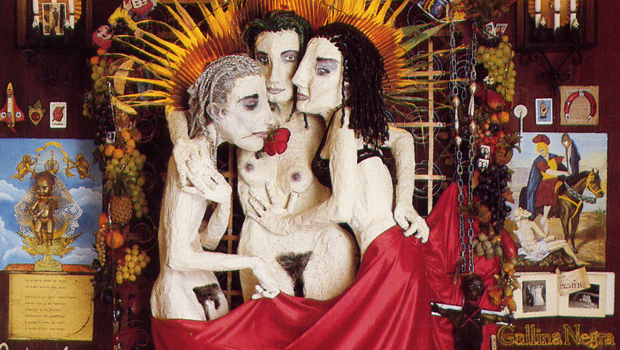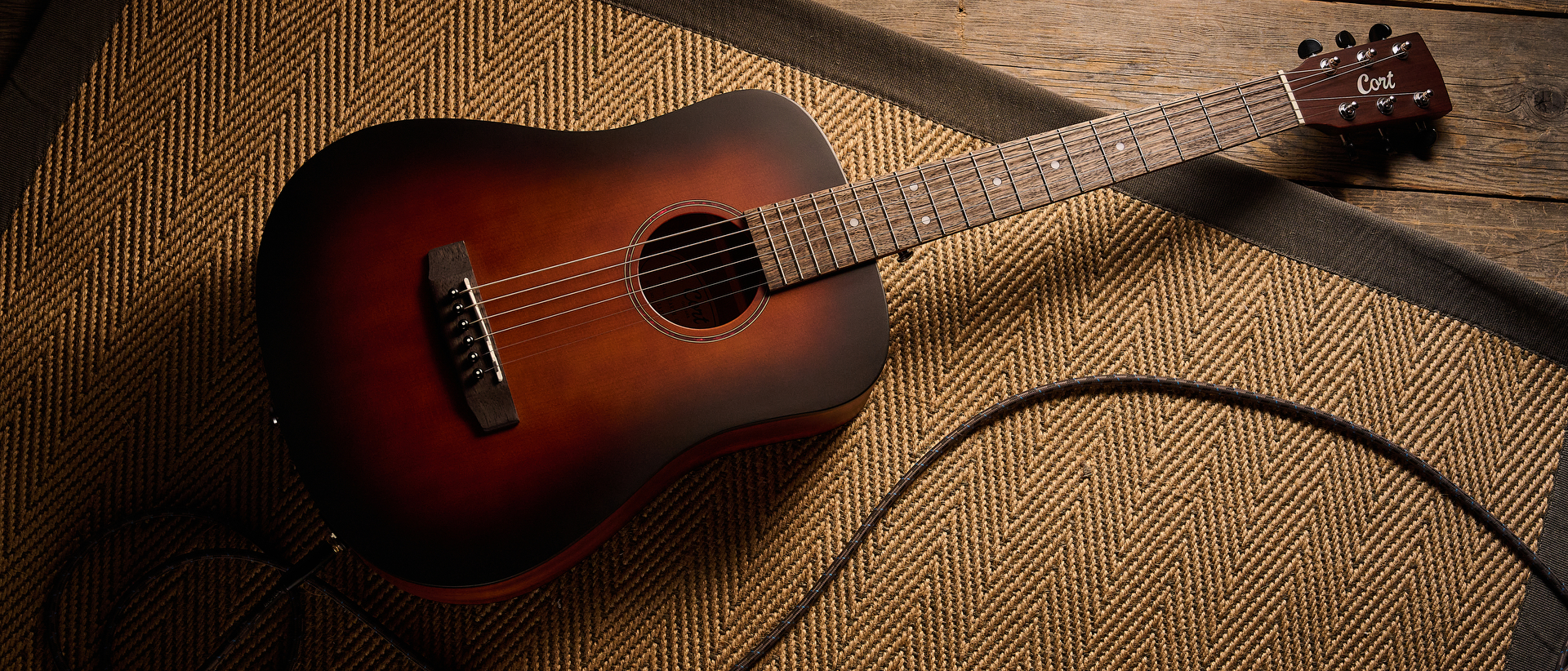Dave Navarro of Jane's Addiction Discusses Technique and Influences in 1991 Guitar World Interview
All the latest guitar news, interviews, lessons, reviews, deals and more, direct to your inbox!
You are now subscribed
Your newsletter sign-up was successful

Here's our interview with Dave Navarro of Jane's Addiction from the February 1991 issue of Guitar World. Navarro is also featured in the December 2011 issue of Guitar World, which is available now at our online store.
With a provocative cover graphic -- Siamese twins, naked, seated in a double rocking chair with their hair on fire-and hard-edged, uncompromising music characterized by blunt imagery and subversive thrash tones, the 1988 album Nothings Shocking established Jane's Addiction as the new darlings of Art Rock.While Perry Farrell, the LA band's outrageous frontman, has garnered considerable media and public attention with his cryptic lyrics, Jon Anderson-esque warble, and flamboyant stage persona, the unsung hero of Jane's Addiction is guitarist David Navarro, the sonic foil to Farrell's overblown vision. The guitarist pulled no punches on Nothing's Shocking, balancing the band 's artsy-pretentious side with his pentatonic wailing ("Pigs In Zen"), serious grungework ("Mountain Song") and wicked wah-wah stylings ("Had A Dad").Now, on the band 's ambitious follow-up, Ritual de lo Habitual, Navarro cuts back on the guitar theatrics but remains a renegade presence nonetheless -- an intuitive axeman devotedly searching for new sounds while carefully avoiding cliches. He scrapes the strings on "No One's Leaving," skronks harmonics on "Ain't No Right," and generally does whatever he can to summon sick , squealing sounds from his instrument -- like using a vibrator (yes, that kind of vibrator).As he puts it, "Whatever works, works."GUITAR WORLD: How would you describe your guitar playing?Well, I'm not technical at all. I don 't know anything about equipment, and I don't even practice at all anymore unless I'm playing with the band. Guitar playing is just something that came to me and is really second nature now.You seem to have an intuitive sense about sounds.That's exactly what's happened. I use mistakes a lot. What I mean is, I'll be playing and something will happen where I make a mistake at a rehearsal or while writing on my own, and if l think it sounds cool, I'll use it. There's really no boundaries when you deal with mistakes.Do you read music?Yeah, I can read music and I know the names of chords. But I never wanted to take lessons or go to GIT and come out like everybody else.I've found that a lot of young guitarists who are heavily into technique often have trouble being really uninhibited with the instrument. They're too tied to the rules.Right, I agree. That's one of the things I wanted to avoid. I didn't want to become a clone. I spent a lot of years playing really fast -- I guess you might call it "metal technique stuff." But I felt that it was really limiting, that it was really anal retentive. I didn't want to come off sounding that way; I felt no expression that way. I think I've combined a lot of different schools to come up with how I play. I play very bluesy and yet almost metal, in a way. There's also some new wave, or whatever you wanna call it in there. My forte isn't just one school of guitar thought -- it's basically whatever sounds good. And I've also come to the conclusion that, as far as guitar solos and things like that are concerned, it's more important to complement the music rather than take away from it. That attitude of "Here's the spotlight, now it's time to show 'em what I can do" is something I don't relate to.Were there any guitar players along the way who opened your mind up to playing this way?Yeah, Daniel Ash, the guitarist from Bauhaus and Love And Rockets. It amazes me how he uses sound, as opposed to technique. For me, it doesn't matter how difficult something is, it doesn't matter how impressive it is, it's what sounds best that really counts. If banging on the open E string with the wah-wah all the way open, so that it's just a cool frequency sustaining, is what makes the song, that's great. At shows I have seen guitar players come up to the stage and stand right in front of me, cross their arms and get this, like, scowl on their faces, as if to say, "Let's see how good this guy really is." But my attitude is, "Who fuckin' cares?" And Daniel Ash is a great example of that because he's not the greatest player in the world. But I listen to some of the stuff he does and it 's just a hundred times more interesting to me than listening to a Van Halen record.Has your approach changed at all in recent years?Well, if you listen to some of our first record you'll find that I was a little bit more showy. On Ritual I'm dealing more with textures and moods and really trying to complement the music. There's a song on the album called "Then She Did," which I think is a beautiful piece. And if I was to throw some wild guitar solo in there I think it would totally mangle that song."Three Days" is a really good showcase for you. It highlights many aspects of your playing -- blues, power chording, interesting voicings.Yeah, it's definitely a guitar-heavy song. And the solo spot for that -- I could've just riffed out all over it, but I felt like developing some lines in there, something musical. That's so much more memorable than a guy just riffing out all over the neck. There's a million flashy things that guitarists can do these days but I think it's more challenging to make the song work.Anyone other than Daniel Ash make an impression on you?Robert Smith of The Cure. And I really respect Steve Vai. He's one of those guitar players who's all over the place. On that level I'm not so jazzed with him; I'm technically impressed, but that's not what I like about him. I like the innovative sounds he comes up with. And I should mention Hendrix, although I'm not a huge fan of his music anymore. I don't think I'd put on a Hendrix album now since I've listened to his music for so long that I know all that stuff inside and out. But when I hear him now, I think about the times he lived in, and where he took his instrument. He was such an innovative guitar player, and that's what impresses me the most about him. Not his licks. Just the way he came up with sounds that nobody heard before.I don't really listen to much rock music -- I'm not rockin' 24 hours a day. For the most part, I'm not a big fan of guitar-heavy bands, although I do like Soundgarden -- I like the repetitiveness of their sound. That's how Jane's Addiction started out. Look at our first album: Some of those songs are basically two chords going on, back and forth. Simple ideas. We've gone off into more complex writing styles on the new album, but we started at a real simple place.How do you get the sounds you want?Effects to me are very helpful; I love them and don't know what I'd do without them. But if l had to, I'd go straight into the Marshall. That new Marshall [9000 series] is the most amazing thing I've ever played through. But I do use the Cry-Baby wah-wah a lot, and occasionally a Boss DS-1 distortion box, just for a boost on a solo. And I use a vibrator.A vibrator?Yeah, it's a vibrator I found at a sex shop in the red light district in Amsterdam. What I do is I hold it over the pickups to get a really cool sound, then manipulate that signal with the echo, chorus and wah. I found that anything motorized held over the pickups sounds cool. Any electrical appliance will work -- egg beaters, blow dryers -- anything you can get your hands on and hold over the pickup will do the trick.You bring this vibrator out on the road with you?Yeah. Actually, it's velcroed to my amp so I can grab it at a moment's notice. I even have a roadie who takes care of it. That's his whole job.
All the latest guitar news, interviews, lessons, reviews, deals and more, direct to your inbox!
